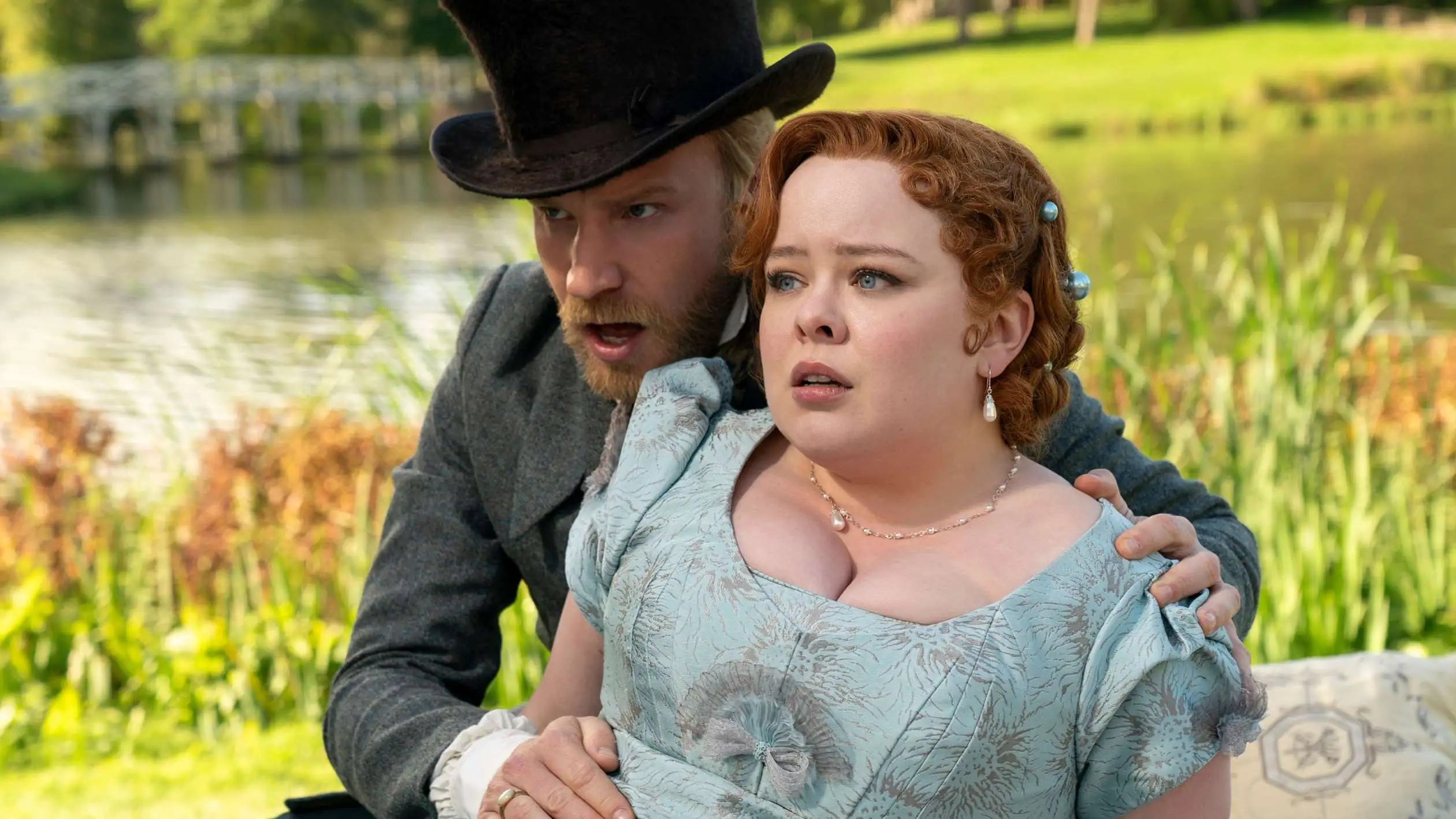The Courtroom Drama Anatomy Of A Scandal Is Low On Captivating Drama Despite The Fiery Idea At Hand
By Rashmi Goel
The story would have been an average courtroom drama with a few showstopping stabs at suspense but for the central issue of the story. A fictional story set against the backdrop of a rape allegation highlights the power and privileges that men of stature have traditionally enjoyed and abused. The crux of the show is relevant in an era when the #MeToo movement has made course corrections a reality everywhere. The story is introduced with a hastily-cut hazy vignette of two persons having sexual relations in a lift, which sets the tone for the remainder of the movie. A popular British minister (Rupert Friend), James Whitehouse is a close friend of the Prime Minister and is happily married with two children. He is writing about Olivia Lytton (Naomi Scott), a young parliamentarian researcher. In the midst of a scandal brewing in the gossip press, James confesses to his wife Sophie (Sienna Miller) that he has been cheating on her. While the Prime Minister (Geoffrey Streatfeild) dispatches a wily communications manager to contain the damage,
he explains, "Twenty or thirty times."
Adapted from Sarah Vaughan's novel of the same name, the series written and developed by Melissa James Gibson and David E. Kelley starts slowly, almost as if to emphasize the happy life of entitlement that James Whitehouse enjoys at home and at work. The early phases are relatively free of drama due to the approach. A sequence depicting James' popularity skyrocketing as word of his fling spreads is created by series director SJ Clarkson. James' senior politician friend points out that James' dalliance doesn't qualify as a squall, or even a disturbance, and dismisses it as "just a bit of rain" in his life. The PM has no intention of dismissing James, at least "not yet". Sophie acknowledges that her family is "officially and formally fortunate". Through those early episodes, however, the narrative focuses on footage used to portray James as a powerful figure and the impact starts to diminish. James solicits patience from the press as he attempts to "repair the damage done to my family and constituents". There is no mention of the damage he might have done to Olivia, who claims she was in love right until the end. James is suddenly faced with the issue of rape when Oliva accuses him. The focus of the case shifts away from the tabloids to the courtroom. Olivia claims that James had forced himself on her about a week after their breakup. A significant aspect of the title of the show, within the context of its context, is the idea of privilege for the man in power. It is titled Anatomy Of A Scandal, not Anatomy Of A Rape. Furthermore, as Pandora's Box explodes, the attention of all - the PM, the public, as well as the media - appears to be firmly focused on the fact that a man of James' stature has been involved in scandal, not that a common young woman claims that her powerful boss has sexually assaulted her.
James, who flatly denies the charge of rape, receives an unexpected shock, which is rather theatrically presented. However, there is still a sense of drama left in the narrative as Angela Regan (Josette Simon) and Kate Woodcroft (Michelle Dockery) prepare themselves for the trial. The writer-creator pairing of Gibson and Kelley struggles to maintain momentum throughout six episodes as the story moves back and forth in time. Instead, the film's makers focus too much on constructing visually appealing scenes which result in a tepid conclusion, despite the film's final twist. As the episodes progress, the show appears increasingly uncertain of its motivation. It does not appear that the producers have a clear idea of what they wish to emphasize. This film is primarily a dramatization of a courtroom drama centered on a case of rape and sexual politics. Should it have maintained a solemn tone throughout, the idea would have been gripping enough to set up suspense drama. As an alternative, the atmosphere is constantly interrupted by attempts to establish an erotic thriller that draws on James' philandering ways during his days as a student. During the interludes, there is melodrama that has a limited impact.
Whenever the story struggles to move, the screenwriters resort to individual scenes worth recalling in order to salvage it. James and Sophie's daughter, shortly after the scandal breaks in the press, asks her mother what a libertine is. She stumbled upon the word in a newspaper headline featuring a story about James. The daughter responds, "Oh! I'm a libertine!" without understanding what that means. However, Sophie quickly clarifies: "It means someone who likes to have a good time.". The prosecution and defence counsels, who are friends outside of the courtroom, discuss aging. One of them comments, "I will look like Brad Pitt in no time." Another responds, "Then I'll fall in love with you.". Kate's chapter where the issue is reduced to an issue of consent, or the lack thereof, is particularly well written. These attempts, however, encounter an endless parade of cliches. As James approaches the courthouse for the first time, the top-angle shot treatment would seem to be a done-to-death cinematic style. An attempt to create a tearjerker moment by showing how James' rape allegation impacts Sophie's life ("Is daddy going to jail?" Sophie asks her little child at the start of the film). Aside from the lack of imagination in the script and jaded writing, the cast does an adequate job.
Kate concludes by saying that people of privilege can no longer break the law without consequence. This is a welcome thought, though the show might have been more effective had it delivered its message with greater assurance. Despite the obligatory twists and a few unnecessary sub plots along the way, the story never really follows the slow burn you expect. Although the plot idea is fiery, there is not enough drama to keep the audience on their toes.












